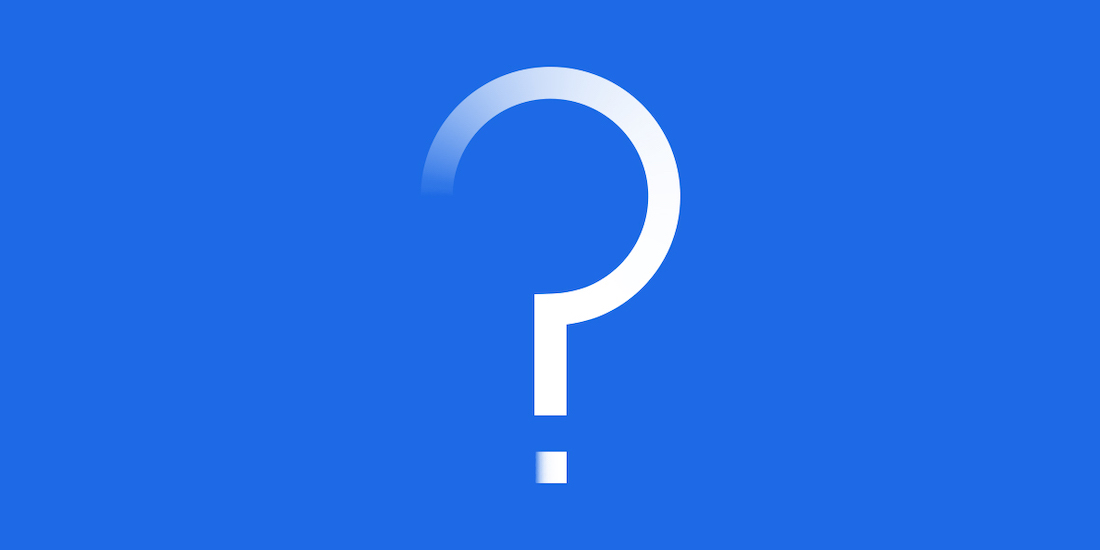Investment Accounts

Featured articles
-
![]()
Should you have an IRA even if you have a 401(k)?
A 401(k) is a great place to start saving for retirement especially if your employer offers ...
Should you have an IRA even if you have a 401(k)? A 401(k) is a great place to start saving for retirement especially if your employer offers matching contributions. But an IRA can take you a step further as you plan for the future. The main idea: If you have a 401(k), consider an IRA as well. You may find that an IRA can provide additional investment choices and potentially lower fees than your 401(k) plan. Plus, having both gives you tax diversification in retirement. Know the essentials: Your 401(k) is most often offered as a benefit from your employer although if you’re self-employed you can have an individual 401(k). It’s common for employers to match your 401(k) contributions up to a percentage of your paycheck. An IRA is an account you open yourself. At Betterment, we can help you open an IRA that meets your goals with our guided process. There are two types of IRAs: Traditional and Roth. You contribute to a Traditional IRA using pre-tax income while a Roth IRA allows for contributions from post-tax income. The big benefits: An IRA in addition to your 401(k) offers 3 potential benefits: Additional investment choice: While Betterment offers the same diverse investment choices in our IRA accounts and 401(k) plans, IRAs typically have more investment options to choose from than an employer-sponsored 401(k). This can help diversify your portfolio using low-cost investments such as ETFs. Access to lower-fee investments: The fees for 401(k) investments are dictated by your employer’s plan. Since you can open an IRA on your own and invest in a range of assets, you have a larger selection of low-fee options available to you. Compare your 401(k) plan fees to IRAs to see if adding an IRA may be right for you. If you have questions about 401(k) fees, ask your HR or benefits contact at your employer. Tax diversification in retirement: Having a 401(k) and an IRA can provide tax diversification in retirement. You can contribute pre-tax dollars to your 401(k) and traditional IRA, paying tax on future withdrawals in retirement. Roth IRAs and Roth 401(k)s on the other hand allow you to contribute post-tax dollars—for example, money from your paycheck that you already paid taxes on. Your withdrawals, both on the earnings and the contributions, when you reach retirement age can be withdrawn tax-free. Bonus benefit: Having a 401(k) and an IRA allows you to put more away for retirement in tax-friendly accounts. In 2024, you can contribute up to $23,000 if under the age of 50 or $30,500 if you’re 50 or older. For IRAs, you can contribute $7,000 ($8,000 if you're 50 or older), depending on your income level. Pro tips: Make sure you know how much your employer matches your 401(k) contributions. Contributions from your employer are essentially free money for your retirement savings. If you are considering an IRA in addition to your 401(k), look at all fees, including management fees and expense ratios, when selecting investments. -
![]()
The five types of investing accounts you need to know
From 401(k)s to 529s, investment accounts vary in purpose. Learn which are better suited for ...
The five types of investing accounts you need to know From 401(k)s to 529s, investment accounts vary in purpose. Learn which are better suited for your long-term financial goals. Investment accounts are valuable tools for reaching your financial goals. But they’re not all the same. You have choices to make, but we’re here to help. Why it matters: Choosing the right investment accounts could mean reaching your goals ahead of schedule. Conversely choosing the wrong accounts could mean you don’t have the money when you need it. Know your goal: Whether you’re simply trying to build wealth or you have a specific goal in mind, knowing what you want to do will guide what account type you choose. Three of the most common goals are: Saving for your retirement Saving for a major purchase such as a house Saving for your own or a loved one’s education The big five: Once you know your investing goal, one of these five types of accounts should likely do the trick: IRAs 401(k)s Health Savings Accounts (HSAs) Individual (or Joint) Brokerage Accounts 529 plans Saving for retirement? Look at these tax-advantaged accounts: IRAs are used to save for retirement, offering unique tax advantages. Unlike a 401(k), your contributions don’t automatically come from your paycheck and the annual contribution limits are lower, about three times lower in fact. An IRA can be an excellent choice. They also may be subject to penalties for early withdrawals. 401(k)s are retirement accounts offered by employers, providing tax advantages similar to an IRA. Contributions are automatically deducted from your paycheck and sometimes employers match a percentage as an added benefit. Keep in mind, you’ll usually incur penalties for early withdrawals. HSAs are designed primarily to help individuals pay for health care costs but once you turn 65, you can use them for anything you want without incurring penalties. Plus, you enjoy triple the tax advantages. Things to know about retirement investing accounts: There are limits: Retirement accounts have different contribution limits (the amount you can deposit each year) based on account type. If you’re looking to save an uncapped amount each year, a brokerage account can be used after maxing out retirement accounts. Did someone say tax-advantaged? The tax advantages of 401(k)s and IRAs come in two flavors: Roth and Traditional. A Roth account may be better if you think you’ll be in a higher tax bracket when you retire. But if you expect to be in a lower tax bracket when you retire, a Traditional retirement account may be better. (Exciting Disclaimer: Always consult a licensed tax advisor.) Did someone say triple-tax-advantaged? With HSAs, contributions, potential earnings, and withdrawals (with a few key stipulations) are tax-free. This is what we mean when we say HSAs enjoy “triple” the tax advantages. The more you know: You can have a 401(k), a Traditional IRA, a Roth IRA, and an HSA at the same, so you can contribute as much as possible toward retirement through tax-advantaged means. Saving for a major purchase? Check out this account: Individual (or Joint) Brokerage Accounts let you purchase stocks, bonds, exchange-traded funds (ETFs), mutual funds, and other financial assets. A joint account is commonly used by married couples to consolidate their investments. Brokerage accounts lack tax advantages but are available to virtually anyone to invest any amount. Saving for education? Then try this account: 529 plans are an ideal choice because earnings are tax-free, as long as you use them for qualified education costs. You can withdraw from the plan as needed for education-related expenses. Hot Tip: Stash your cash until you’re ready. Choosing the right investing account can take some thought. While you're deciding, a high-yield Cash Reserve account can help you earn more from your cash until you’re ready to invest. -
![]()
Three spring cleaning tips for savers
Dusty, forgotten 401(k)s. IRAs left unmaxed from last year. With Tax Day around the corner, ...
Three spring cleaning tips for savers Dusty, forgotten 401(k)s. IRAs left unmaxed from last year. With Tax Day around the corner, now’s a good time to get your accounts in order. Don’t look now, but Tax Day is just around the corner. We say this not to kill your vibe (promise). Temperatures are warming up, and we’ll all soon be swept up in summer fun. That’s why now’s the time to do a little spring financial cleaning. Before all the graduations, road trips, and weddings temporarily short circuit your brain’s budgeting apparatus. So pick a time, throw some music on, and knock out these three essential spring cleaning tasks. 1 | Consolidate your accounts and feel the power of one BIG number Investing and savings accounts can pile up over the years and become a little like that loose change lying around your house and car. A few quarters here, a handful of dimes there. It doesn’t seem like much separately. But it adds up. 401(k)s and IRAs are no different. A couple thousand in this one, a few hundred in that one. Sometimes there’s an account you forget about every year until the tax form comes. All that splintering of your money has several potential drawbacks, especially when it comes to investing accounts: External accounts serving the same goal could have wildly different levels of risk. External accounts miss out on our tax coordination perks and make it harder to use our Tax Loss Harvesting+ feature without incurring a wash sale. Last but definitely least, lots of small accounts can keep you from noticing your progress and celebrating a milestone. Special milestones like $25k, $50k, or even $100,000 saved for retirement. So we encourage you to consider rolling over old 401(k)s and IRAs into one place. If you’re not in love with the 401(k) plan a previous employer offered, you can even roll that into an IRA if it’s the right call for you. At the very least, it may spare you a few forms to input come tax time. 2 | Travel back in time and save some more Maybe you set the goal of maxing out your IRA last year and fell short. But you’re flush with cash now, possibly thanks to a bonus or a big tax refund that’s on the way. You’re in luck, because the IRS essentially lets you time travel for a saver’s do-over. You have until Tax Day of this year to max out your IRA’s limits for last year. Doctor Who approves. And we make it easy in practice. While making a deposit into your IRA, just select the tax year you want the deposit to go toward. 3 | Take a fresh look at your cash goals The early days of spring are an excellent time for a quick cash gut check: Do you have enough pocketed for that family vacation? Is your emergency fund funded to a point where you feel financially secure? If your tax return came back in the red, can you comfortably cover the expense? If you answer no to any of these questions, now’s the time to reassess your cash flow and redirect it to the right spots.
Considering a major transfer? Get one-on-one help with one of our experts. Explore our licensed concierge
Looking for a specific topic?
- App
- Behavioral finance
- Buying Real Estate
- Career Planning
- Cash Reserve
- Charitable Giving
- Crypto investing
- DIY Investing
- Debt
- Diversification
- ESG Investing
- Education Savings
- Estate Planning
- Fiduciary Advice
- Filing Taxes
- Financial Advisors
- Financial Goals
- Health Savings
- Inheritances
- Insurance
- Investing
- Investing Philosophy
- Investing Risk
- Investing with Betterment
- Investment Accounts
- Investment Portfolios
- Market volatility
- Markets
- Performance
- Public statements
- Retirement Income
- Retirement Planning
- Robo-Advisors
- Rollovers
- Salaries and Benefits
- Saving Money
- Savings Accounts
- Security
- Shared Finances
- Tax Coordination
- Taxes
- Transfers
- Using IRAs
- bond investing
No results found




